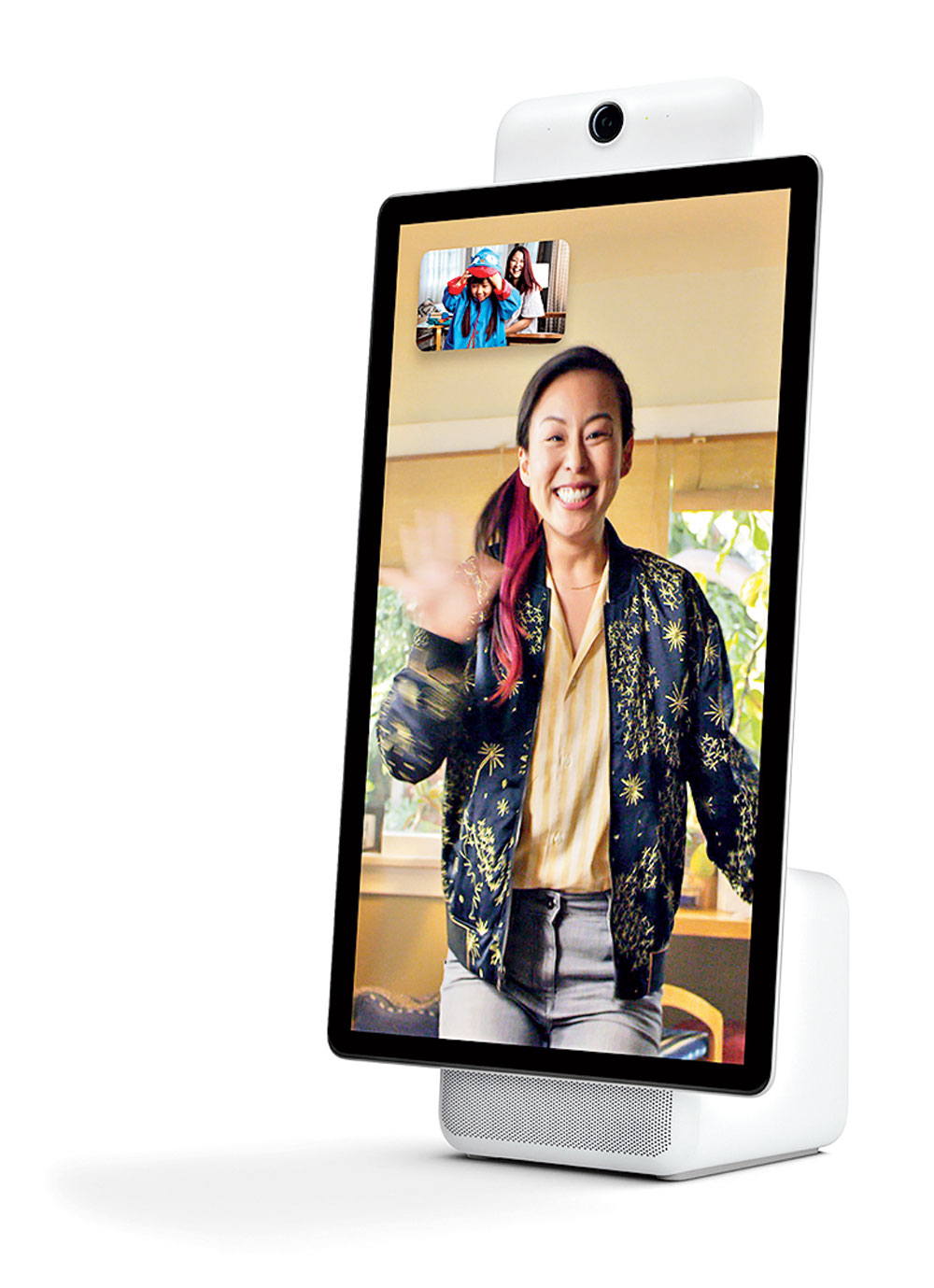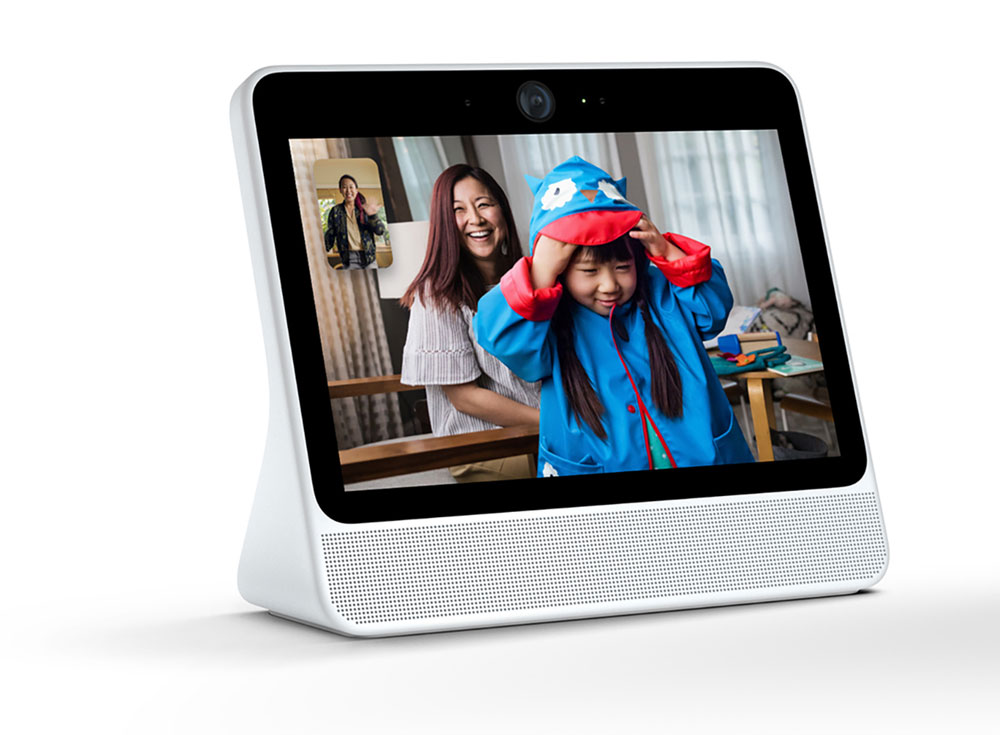
At a time when trust in its services is eroding, the social network introduced its first major effort to build consumer hardware from scratch. Source: Facebook via The New York Times
Since 2004, Facebook has said it wants to bring the world closer together. To accomplish that goal, the company has relied mostly on the web and smartphone apps. But software is no longer enough. Recently, Facebook introduced a pair of video-calling devices — Portal and Portal Plus — to help expand its reach into people’s living rooms.
Portal and Portal Plus have a 12-megapixel camera with high-definition video and artificial intelligence software and can be used to do video chats. The AI-powered camera follows users as they move, letting them converse without sitting stiffly.
The devices also include Amazon’s Alexa, which people can command to play music or check the weather. Portal has a 10-inch screen, while Portal Plus has a 15-inch display that can be rotated. Facebook plans to offer the gadgets on a stand-alone website in time for the Christmas holidays and has a major marketing campaign in the works.
The devices are Facebook’s first major foray into designing, building and selling consumer hardware from scratch. If the Portals are successful, the company could encourage more people to use its social network regularly to keep in touch with friends and family, as well as for apps like Spotify and Pandora.
The company said the utility of the devices, which work on a household WiFi connection, would convince people of their importance in a home. The devices are built atop Facebook’s Messenger platform, and the communication software is hooked into a user’s web of Facebook connections. Once Portal is connected to a Messenger account, people can video chat with anyone in their network across devices, be it on Portal, a tablet, a smartphone or a PC.
But, Facebook is entering a fiercely competitive market. Voice-controlled smart speakers, a category birthed by Amazon in 2015 with its Echo, is small but growing. Last quarter, manufacturers shipped 16.8 million smart speakers, up 187 per cent from the same period last year, according to the research firm Canalys. Amazon and Google dominate the smart speaker market in the United States.
In the last two years, smart speakers have evolved to include screens for videoconferencing, videos and apps. Amazon last year unveiled Echo Show, its first Echo with a display, and Lenovo teamed up with Google this year on a smart screen featuring Google’s Assistant. Google is also expected to release its own smart screen this year.
Instead of building its own virtual assistant three years after Alexa’s debut, Facebook worked with Amazon. Like other Amazon-powered products, Portal can be controlled by speaking the word “Alexa” before a question or a request, like “What’s the weather in San Francisco?” or “Set a timer for 10 minutes.”
Jonathan Collins, a research director for ABI Research, said it was wise for Facebook to collaborate with Amazon. While creating a digital assistant has helped Apple, Google and Amazon make their products look more attractive, there was no clear benefit for Facebook to make one of its own, he said.
“It’s not an obvious link to what they do for people at present,” which is to deepen people’s relationships, Collins said. Facebook had worked on hardware previously, though its involvement with Portal goes much deeper and further. In 2013, the company and the manufacturer HTC produced the HTC First, a smartphone that ran on a new Facebook-based operating system. The phone flopped.
The company also sells virtual-reality goggles, which it got into when the startup Oculus was already building those products. Facebook acquired Oculus in the year 2014.
Gadget: Portal and Portal Plus
Tech specs: Powered by AI, Portal smart camera and smart sound technology
Price: $199 and $349
Best for: Video calling Facebook friends










